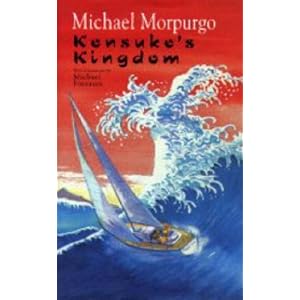Today's book is War Horse, by Michael Morpurgo
 |
| Hey look, it's even a film now! |
This was a set text way back when I was in, I think, Year 9 - a notorious year in any high school, when the kids are just getting the hang of rebellion, but don't have the disciple over themselves or their own bodies to be really good at it yet. War Horse stayed with me for a while, but it's actually when I went back and re-read it several years later that I realised how good it was. The fact I even thought to re-read it tells you a lot. I was not a bookish child, and I think it would amuse quite a lot of my old teachers to find out what I'm like now.
So, why did I reread War Horse? Because it's flippin' good - and because Michael Morpurgo is probably one of the most prolific and influential children's writers living today.
It's strange that he doesn't get the big 'hurrahs' of mega-authors, but at the same time, it makes sense. He has written a vast number of truly good books, but always in a quiet, dignified way. While the ebb and flow of celebrity and over night success makes the media giddy with delight, Michael Morpurgo is an author who spends time in schools, time on his farm, and time writing lasting books to change lives. And winning awards, of course. And praise. 'Cause he's amazing.
I also reread War Horse because I had been to the local WH Smith and bought Kensuke's Kingdom (with this exact cover!)
 |
| I wonder if I still have my copy of this, in England? |
I bought it because it was by him, that author I'd liked. First time I ever did that. Nowadays we call it brand loyalty, or consumer penetration, or a whole host of words designed to hide, and not reveal, meaning. Bah. I call it wanting to read more, because I liked his first book.
What more can a writer ask for from kids?
I even moved to Japan years later, though in fairness, that wasn't because of Michael Morpurgo, or Kensuke. Probably.
Mostly.
I think.




